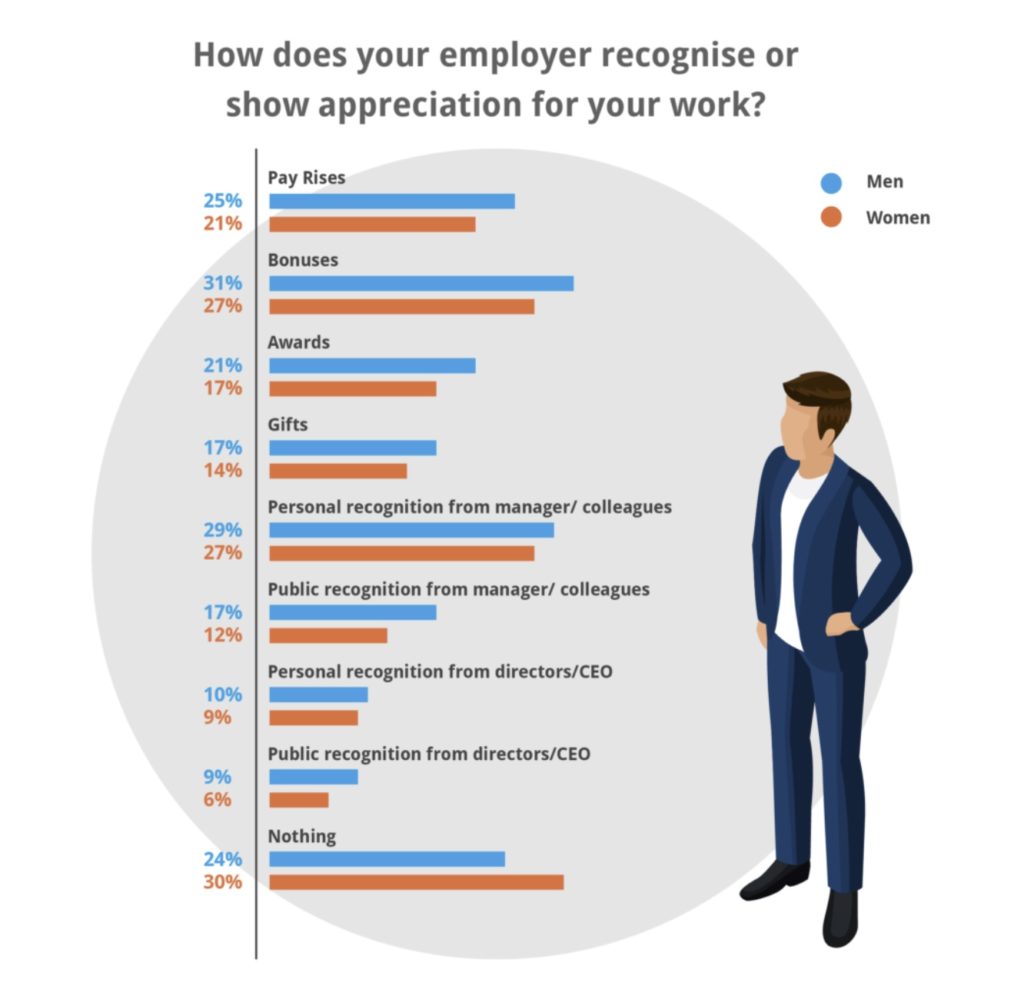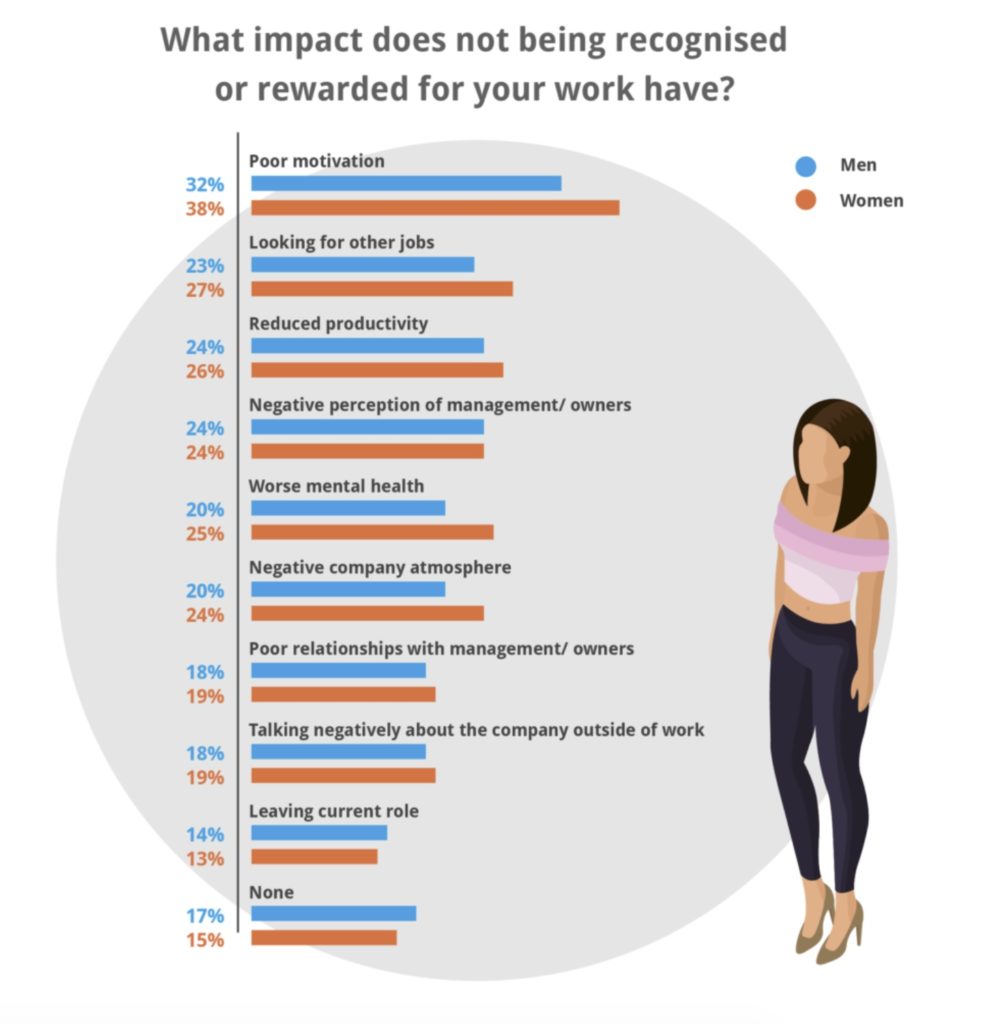Around a third of UK staff are feeling undervalued, and receiving no recognition, despite the Great Resignation and recruitment crisis, according to a new study.
The survey carried out by business gifts retailer ADLER, of 2,000 UK workers about the level of recognition they receive at work and how it affects their morale, revealed that staff aged 55+ feel the least valued at work; with women receiving fewer pay rises, bonuses, recognition and gifts than men.
Almost a third (28%) of UK workers receive no appreciation from the companies they work for. The percentage is slightly higher for women (30%, compared to 24% of men), highlighting the gender gap in worker recognition.
GENDER DIVIDE
Women are also less likely to receive the following compared to male colleagues:
- Pay rises (21% of women vs 25% of men)
- Bonuses (27% vs 31%)
- Personal recognition (27% vs 29%)
- Public recognition (12% vs 17%)
- Awards (17% vs 21%)
- Gifts (14% vs 17%)
Staff shortages and retention are the biggest concerns for businesses across the UK in the wake of the Covid-19 pandemic, as demand for workers continues to hit new records. According to the Recruitment and Employment Confederation (REC), the UK is experiencing the worst staff shortages since 1997, with a 200% increase in advertised vacancies. And while furloughs, redundancies and Brexit have played a significant role in the labour crisis, employees’ treatment and recognition have also had an impact.

EMPLOYEE MOTIVATION TAKES A HIT
The pandemic has also taken its toll on company culture; with 15% of workers believing COVID has had a negative effect on workplace recognition, which has ultimately had a detrimental impact on staff engagement and motivation
The study revealed that this lack of motivation led to over 25% of UK workers searching for new jobs. It also led to reduced productivity, a negative perception of management and poor mental health. All of these responses were more prevalent in women than men, illustrating the problem of undervaluing female staff.
Older employees also felt undervalued, with 16 to 24-year-olds feeling over twice as recognised at work compared to over-55s. The percentages of each age group who felt they received no recognition or appreciation were:
- 16-24-year-olds: 18%
- 25-34-year-olds: 20%
- 35-44-year-olds: 28%
- 45-54-year-olds: 35%
- Over-55s: 43%

IDEAL EMPLOYEE BENEFITS
When asked how they wanted to be recognised, over half of the people surveyed agreed on pay rises and bonuses, whereas a third suggested they preferred gifts, with chocolate and personal care being the most wanted gifts.
Some of these expectations have not gone unnoticed by employers who have had to increase their financial incentives to attract staff as well as retain them. Recent findings show that over half of UK employers (67%) have increased different roles’ salaries in order to compete for talent. This amounted to a total cost of £2.16 billion.
There is still however a lot more work that needs to be done. With 1.3 million non-UK workers leaving the country, the vacancies will continue to need filling for many months to come. Yet to achieve this, employers will need to improve their recognition tactics and create a positive work culture where people feel valued. You can find more insights on the study here.




































